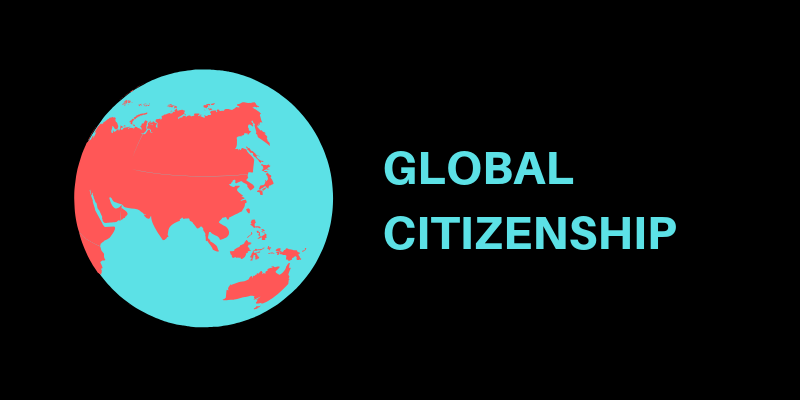
Promoting Global Citizenship through International Education Programs
In an increasingly interconnected world, fostering global citizenship has become paramount. As societies become more diverse and interconnected, understanding and respecting different cultures, perspectives, and ways of life are essential for creating a peaceful and prosperous global community. International education programs play a crucial role in promoting global citizenship by providing students with opportunities to engage with diverse cultures, develop intercultural competence, and contribute to positive social change on a global scale.

Understanding Global Citizenship
Global citizenship transcends national boundaries and emphasizes a sense of belonging to a larger global community. It involves recognizing and respecting the interconnectedness of people, cultures, and environments worldwide. Global citizens are individuals who are aware of global issues, empathetic towards others, and actively engage in promoting justice, equality, and sustainability on a global scale.
The Role of International Education Programs
International education programs, such as study abroad experiences, exchange programs, and international volunteer opportunities, offer students unique opportunities to develop global citizenship competencies. These programs expose participants to diverse cultures, languages, and perspectives, helping them develop empathy, intercultural communication skills, and a broader understanding of global issues.
Cultural Exchange and Understanding
One of the primary benefits of international education programs is the opportunity for cultural exchange and understanding. By living and studying in a foreign country, students immerse themselves in a different cultural context, gaining firsthand experience of local customs, traditions, and values. This exposure fosters empathy and appreciation for cultural diversity, challenging stereotypes and fostering mutual respect.
Developing Intercultural Competence
International education programs also play a crucial role in developing intercultural competence—the ability to communicate effectively and appropriately across cultural boundaries. By navigating unfamiliar cultural norms and engaging with people from diverse backgrounds, students learn to adapt their communication styles, resolve conflicts, and collaborate across cultures. These skills are essential for success in an increasingly globalized world.
Addressing Global Challenges
Furthermore, international education programs empower students to address global challenges collaboratively. By working on international projects, participating in service-learning initiatives, or conducting research with global implications, students gain a deeper understanding of global issues such as poverty, climate change, and human rights violations. They are inspired to take action and become agents of positive change in their communities and beyond.
Promoting Global Citizenship in Education
To maximize the impact of international education programs in promoting global citizenship, it is essential to integrate global perspectives across educational curricula and institutional policies. Schools, colleges, and universities can adopt the following strategies:
Incorporating Global Content in Curriculum
Educational institutions can integrate global perspectives into their curricula across disciplines. This can include incorporating readings, case studies, and discussions on global issues, as well as providing opportunities for students to engage in collaborative projects with international partners.
Encouraging Intercultural Exchanges
Schools and universities can promote intercultural exchanges by facilitating student exchanges, hosting international guest speakers, and organizing cultural events and workshops. These activities create opportunities for students to interact with individuals from diverse backgrounds and broaden their worldview.
Supporting Diversity and Inclusion
Creating an inclusive and welcoming environment for students from diverse backgrounds is essential for fostering global citizenship. Educational institutions can implement policies and initiatives to support diversity, equity, and inclusion, including offering scholarships for underrepresented groups, providing cultural competency training for faculty and staff, and establishing support services for international students.
Engaging in Global Partnerships
Collaborating with international partners, such as universities, NGOs, and governmental organizations, allows educational institutions to expand their global reach and impact. By participating in joint research projects, student exchanges, and capacity-building initiatives, institutions can leverage collective expertise and resources to address global challenges effectively.
Tailored Study Abroad Programs
MakeMyAssignments can help college students find study abroad programs that align with their academic interests and personal goals. By providing personalized guidance and support, MakeMyAssignments ensures that students have access to diverse cultural experiences and academic opportunities that enhance their understanding of global issues and foster intercultural competence.
Assistance with Application Process
Navigating the application process for study abroad programs can be daunting. MakeMyAssignments offers assistance with preparing application materials, including essays, resumes, and recommendation letters. Their experienced advisors guide students through each step of the application process, ensuring that they present themselves effectively and increase their chances of acceptance into their desired programs.
Academic Support and Resources
Studying abroad often presents academic challenges, such as adapting to different teaching styles and adjusting to new learning environments. MakeMyAssignments provides academic support services to help students succeed academically while abroad. This includes tutoring, study groups, and access to academic resources to supplement their learning experience.
Cultural Immersion and Integration
MakeMyAssignments understands the importance of cultural immersion in promoting global citizenship. They offer programs that facilitate meaningful cultural experiences, such as homestays, language immersion courses, and cultural excursions. By immersing themselves in the local culture, students gain a deeper appreciation for cultural diversity and develop empathy towards people from different backgrounds.
Networking and Community Building
MakeMyAssignments fosters a supportive community of students who participate in international education programs. Through networking events, social activities, and online forums, students can connect with peers who share similar interests and experiences. This sense of community provides students with a support system while abroad and encourages collaboration and cross-cultural exchange.
Alumni Support and Career Development
Upon returning from their international education programs, MakeMyAssignments continues to support students in their personal and professional development. They offer career counseling, resume writing workshops, and networking opportunities to help students leverage their international experience in their future endeavors. Additionally, MakeMyAssignments connects students with alumni who have participated in similar programs, allowing them to learn from their experiences and insights.
In summary, MakeMyAssignments plays a vital role in supporting college students’ participation in international education programs and promoting global citizenship. By providing tailored guidance, academic support, cultural immersion experiences, networking opportunities, and career development resources, MakeMyAssignments empowers students to become informed, empathetic, and socially responsible global citizens.





